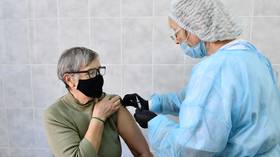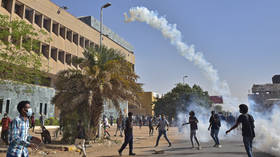Russia sets out position on mandatory vaccinations

Russia has ruled out the possibility of slapping fines on people who refuse vaccination against Covid-19, despite regions across the country passing directives requiring elderly and vulnerable citizens to sign up for jabs.
Speaking at a press conference on Tuesday, Kremlin press secretary Dmitry Peskov was asked whether those who refused to comply would be handed financial penalties. “No, we won’t permit such measures to be taken in Russia,” he answered.
On Monday, local media in Austria reported that the country was considering implementing mandatory vaccination beginning in February 2022. A draft of the plan showed that residents of Austria who refuse vaccination would face fines up to €3,600, or four months imprisonment if they failed to pay. People who repeatedly refused orders to get vaccinated could be fined up to €7,200.
Russia registered record numbers of Covid-19 cases and deaths in November. Although domestic-made vaccines have been available since last year, less than half of the population has gotten a jab. The government has encouraged people to get vaccinated, and the Ministry of Health has warned that those who have been immunized make up only 0.03% of serious Covid-19 cases.
Speaking to RBK business daily on Wednesday, Timofey Nestik, a researcher at the Institute of Psychology in the Russian Academy of Sciences, hit out at a scheme to give anti-vaccine activists tours of hospital wards. According to him, the tours, a number of which have already been carried out as part of a media opportunity, were ineffective because they only brought attention to the anti-vaxxers’ beliefs.
Nestik recommended that Moscow guarantee people won’t get sick from the vaccine, and use the media to share positive and encouraging stories about vaccination. The scientist added that Covid-19 is not going away, and that the conversation should “shift the focus from how soon one person needs to get vaccinated, to how we’re going to live as things go on.”
Russia is considering implementing a nationwide QR-code system that would restrict access to public areas and transport based on vaccination status. However, polls show that nearly half the population opposes the use of vaccine passports in this way.
In Moscow, workers in a number of public-facing industries including transport and hospitality have been ordered to sign up for jabs or face being sent home without pay. Other regions have introduced ‘mandatory’ vaccination for the elderly and infirm, but it is unclear what the penalty would be for those who refuse.













